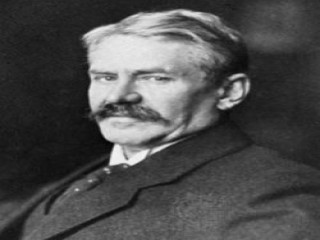
Ernst Troeltsch biography
Date of birth : 1865-02-17
Date of death : 1923-02-01
Birthplace : Berlin, Germany
Nationality : German
Category : Historian personalities
Last modified : 2011-04-19
Credited as : Protestant theologian and writer, historian, Historismus und seine Probleme
The German theologian, historian, and sociologist Ernst Troeltsch, through his utilization of the objective methods of modern scholarship, contributed to the sociology of religion and the problems of historicism.
Ernst Troeltsch was born in Augsburg. After studying theology at the universities of Erlange, Gottingen, and Berlin from 1883 to 1888, he became a lecturer at Gotingen in 1891, an associate professor at Bonn in 1892, and a professor at Heidelberg in 1894; he remained at Heidelberg for 21 years. For a short time he was a Lutheran curate in Munich. In 1901 he married, and a son, Ernst Eberhard, was born in 1913. In 1915 he came to feel that theology was too confining and transferred to philosophy at the University of Berlin.
A conservative in politics, Troeltsch long served in the Baden upper house. From 1919 to 1921 he was a member of the Prussian Landtag and concurrently secretary of state for public worship. He was moved deeply by the war. Like Max Weber and others, he hailed the "great and wonderful" fervor of the Germans and saw their cause rooted in idealistic values as opposed to the materialism of the Allies. Soon, however, together with Weber and Friedrich Meinecke, he left the conservative majority, opposed annexationist war aims, and advocated increased democratization. After the war he defended the Weimar Republic, decried the "frightful demagoguery" of the right, and advocated a genuine conservatism in articles which bore the pseudonym of Spektator and appeared until 4 months before his death.
In The Social Teaching of the Christian Churches (1912) Troeltsch studied the relation between religion and the other elements of society and culture. He found that Christianity was not reducible to displaced social protest, as Karl Kautsky and the Marxists had suggested, but rather was a real and autonomous religious movement with its own immanent implications for development and its own independent effect upon history. Although the forms of belief and organization developed by the Church were historically conditioned, they also represented the unfolding of the implications of Christianity's inner meaning; and once the Church was established, it also in turn affected and influenced other aspects of society and culture.
Troeltsch carried out his study in four contexts— family, economic life, politics, and intellectual life—and found Christianity exhibiting two contrary but complementary tendencies—accommodation and protest. These two tendencies gave rise to two organizational types: the Church, which qualifiedly accepted the world in order to sanctify it, and the sect, which rejected the world and the whole idea of adjustment to it. Troeltsch stated that the Christian ideal could not be "realized within this world apart from compromise" and that consequently Christian history was "the story of a constantly renewed search for this compromise, and a fresh opposition to this spirit of compromise."
In an earlier work Troeltsch had examined the relationship between Protestantism and modern capitalism. He agreed with Weber that Calvinism had an important early influence upon the development of capitalism, but he saw the Protestant impact upon economic developments as chiefly "indirect and unconsciously produced" and religion as more affected than affecting with respect to modern developments. Despite the Christian derivation of modern civilization, Troeltsch came to see the future of Christianity as "unpredictable" and its survival demanding "very bold and far-reaching changes."
Historicism was a profound challenge to Troeltsch. If all beliefs and values are products of individual tendencies specific to particular conditions, is there then nothing suprahistorical resulting from man's search for truth and creation of value? He studied this problem in his Historismus und seine Probleme (1922), examining the "relation of individual historical facts to standards of value within the entire domain of history in connection with the development of political, social, ethical, esthetic, and scientific ideas." Earlier he had spoken of "polymorphous truth, " which though beyond history is apprehended differently in different civilizations and epochs, and he had also sought for an extrahistorical basis in morality. Now he concluded that "even the validity of science and logic seemed to exhibit, under different skies and on different soil, strong individual differences present even in their deepest and inner rudiments."
Troeltsch was concerned with historicism not simply as a scholar but as a deeply religious man as well. Although he failed to solve the problems intellectually, he concluded: "Skepticism and relativism are only an apparent necessary consequence of modern intellectual conditions and of historicism. They may be overcome by way of ethics"; and, "If there is any solution at all to these riddles and problems, with their conflicts and contradictions, that solution certainly is not to be found within their own sphere, but beyond it, in that unknown land, of which there are so many indications in the historic struggle of the spirit upward, but which itself is never revealed to our eyes."
















